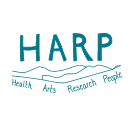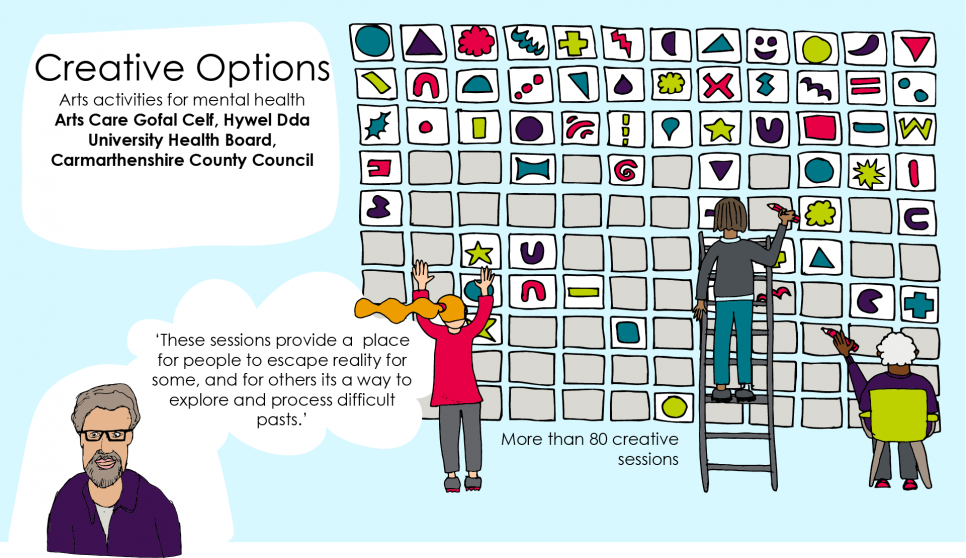Chris Ryan, director of Arts Care Gofal Celf, and Rachel Murphy, the organisation’s project coordinator, share their experiences of running HARP project ‘Creative Options’
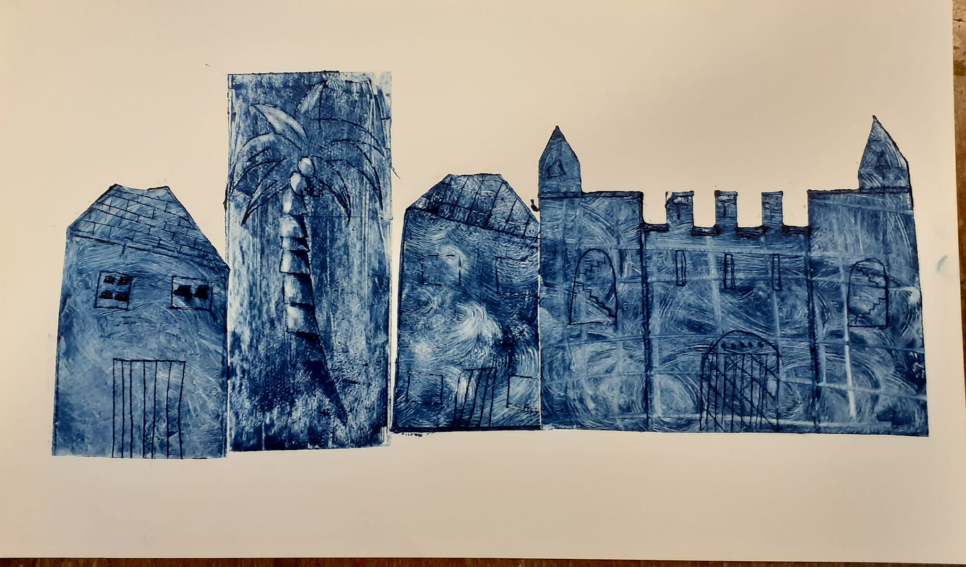
The Covid-19 pandemic took a swift and devastating toll on Welsh people’s mental health.
The number of people in Wales experiencing severe mental health issues almost tripled during the first lockdown, placing significant pressure and demand on mental health services across Wales.
While there has been a shift from institutional to community care for people experiencing mental health challenges, there are still many people recovering from acute mental illness in hospital settings.
Arts Care Gofal Celf’s work with Carmarthenshire County Council and Hywel Dda University Health Board (UHB) has been largely community-focused for many years, but during the pandemic we recognised the particular need for creative spaces in psychiatric hospitals and residential settings.
So, with HARP’s support, we launched Creative Options, a project designed to deliver a range of creative activities to adults with mental health challenges who are in hospital or staying in supported living and residential care settings.
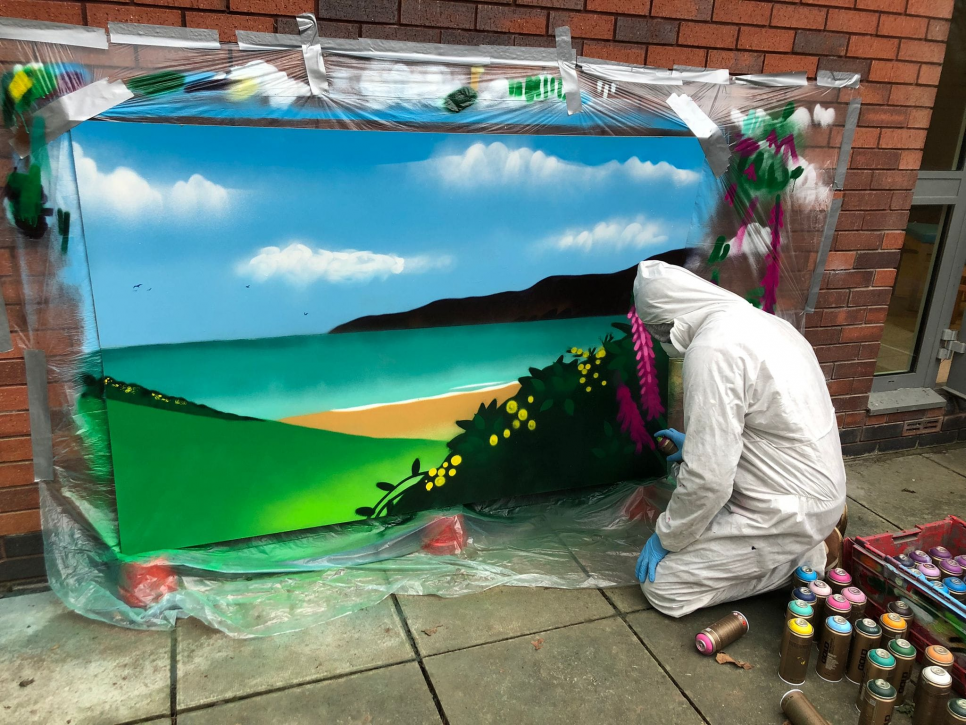
We ran over 80 creative sessions in six months across four mental health wards in Carmarthen and Llanelli. The activities ranged from printmaking and pebble painting to felt and textiles work, woodcraft, ceramics and graffiti art.
Participants included people in psychiatric intensive care units and on semi-secure wards, as well as low-security patients preparing to return to the community. They worked on communal and individual pieces.
The graffiti art brightened up the hospital walls for staff and patients, and some of the creative writing has been so powerful that we are hoping to organise a showcasing event.
We also ran two community-based mental health projects in Llanelli and an online creative writing project.
Patients looked forward to the sessions. It provided a purpose and, for some, the opportunity for distraction”
New ways of working
Arts Care Gofal Celf has been running for more than three decades but organising sessions in a hospital and online during a pandemic has provided new learning for us.
Hospital staff were keen for the sessions to be face-to-face, for social and practical reasons, but Covid-19 restrictions meant the project’s start was delayed.
As staff capacity was stretched, their engagement with the sessions also varied. Those able to fully engage were positive about the impact on their wellbeing as well as patients’.
The artists bring in a new energy. Having been locked down for such a long time, these sessions have provided a breath of fresh air and a sense of hope to patients and staff that things are getting better
We were fortunate to have the support and guidance of a senior occupational therapist throughout the programme. She was invaluable in driving the project forward and highlighted the importance of finding an advocate and key decision-makers within the health structure to help steer such projects.
The same applies to working with other larger institutions.
Plans to partner with Carmarthenshire County Council and the housing authority were put on hold due to internal department changes.
But we have benefited from guidance and support provided by a steering group established specifically for this project. This was made up of representatives of the project partnership and provided expertise from each sector.
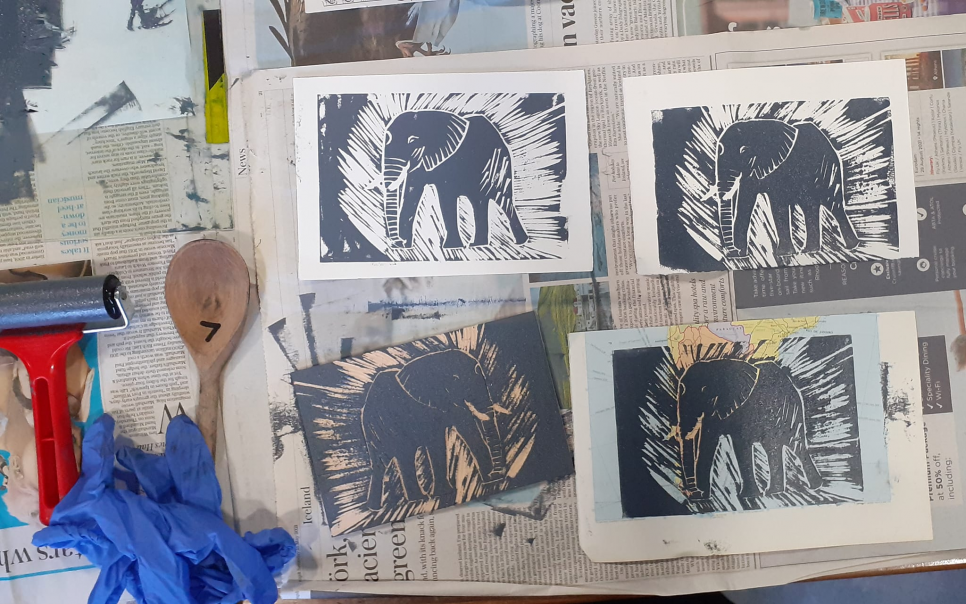
Planning for the creative sessions also required a new approach.
Ordinarily, artists plot out a block of sessions for up to 15 individuals. But in hospital settings patients are admitted and discharged regularly, meaning numbers and participants vary across a project’s lifespan.
As research shows that routines play an important role in mental health, we chose a set day each week to visit the wards, so if patients moved between wards or left hospital and returned they knew in Llanelli or Carmarthen Tuesday was arts day.
HARP’s flexible support enabled us to run the project differently and trial new things.
Before our HARP project, we had considered online sessions ‘second best’ to convening in-person workshops but our online creative writing sessions have changed that.
The creative writing group appreciated being able to take part without having to travel, particularly when they were having a difficult day, and many remarked they felt safer at home, which is important to those who have experienced trauma.
We will continue to take a hybrid approach to our programmes, working online and in person.
Zoom has been a brilliant way to socialise through the pandemic and also when I have no transport
We tried out other new ways of working, too. We would usually hire individual artists to deliver set sessions but HARP’s funding enabled us to bring together a core team of artists from different disciplines who could work more collaboratively, they shared creative ideas and worked together.
They shared learning and solutions and provided peer support when they felt overwhelmed. They are now producing artwork based on their involvement, a first for us.
Measuring Creative Options’ impact has required fresh thinking.
Some staff feared us using wellbeing scales to talk to patients with severe mental illness about why they were feeling unwell, filming individual stories was not possible for confidentiality reasons, and patients were too unwell to fill in questionnaires, so we relied heavily on feedback from staff, artists’ and participants’ comments.
Creative Options’ future
Our aim is to secure funding to maintain at least some of this work.
There are plans to roll the programme out in Pembrokeshire and Ceredigion. We want to develop partnerships that enable us to adopt a more cohesive approach to this work across the health board and with the local authorities. We are looking forward to working with art and health coordinators from Hywel Dda UHB.
Despite some challenges, Creative Options has been an overwhelming success and we look forward to building on the legacy of the project.
Creative Options is a partnership between Arts Care Gofal Celf, Hywel Dda University Health Board, and Carmarthenshire County Council, and West Wales Action For Mental Health.
For more information, contact info@acgc.co.uk, visit www.acgc.co.uk or call 01267 243815
